The origins of the Ralli family are from Southern Greece. Though there were references to the Ralli family in the early 1500s, the documented history is from 1690, having multiple businesses in and around Greece.
Five brothers from the Ralli family – Zannis Ralli (1785-1859), Augustus Ralli (1792-1878), Panidas Ralli (1793-1865), Toumazis Ralli (1799-1858) and Eustratios Ralli (1800-1884) – established Ralli Brothers in England during 1818. They were pioneering, enterprising and highly ethical in conducting business.
With the enactment of the Charter Act in 1813 at the Parliament of the United Kingdom, East India Company lost its monopoly of Indian trade. In 1833, the Act ended the activities of the Company as a commercial body and turned it into a purely administrative body. Seeing this as a business opportunity, Ralli Brothers opened a branch office in Calcutta way back in 1851, managed by John Eustratio Ralli and Nicholas John Pasapati.
Ralli Brothers, which was already a large business internationally dealing in wheat, oilseeds, silk and hemp, made a foray into India to expand their trade.
Lucas Ralli (1920 to 2003), a World War II veteran and the last member of the Ralli family to have worked with Rallis India Limited, wrote as below:
Ralli Brothers Office, Clive Street, Calcutta
Founded in 1948, Rallis India Limited has established a solid reputation of being a trusted solutions provider for agri-inputs globally, with an emphasis on innovation, a thorough knowledge of farm science and a widespread distribution network.
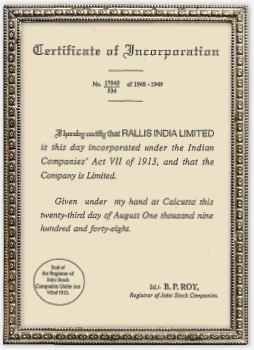
Rallis India Limited came into existence on August 23, 1948, under the holding company Ralli Brothers London.
The Company was set up with a paid-up capital of ₹ 3 crore. At that point, Rallis’ business mainly consisted of trading in cotton, jute and oilseeds and the urge for diversification continued.
This clearly paved the way for the successful diversification strategy of fertiliser distribution through its partnership with the Nitrate Corporation of Chile. This was Rallis’ first foray into agri-inputs, by way of leveraging its already well-established association with the Indian farming community.
Inauguration of Rallis India Limited, 1948
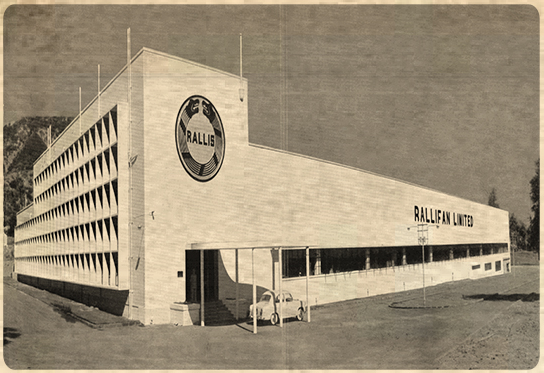
Rallifan Factory, Mumbai
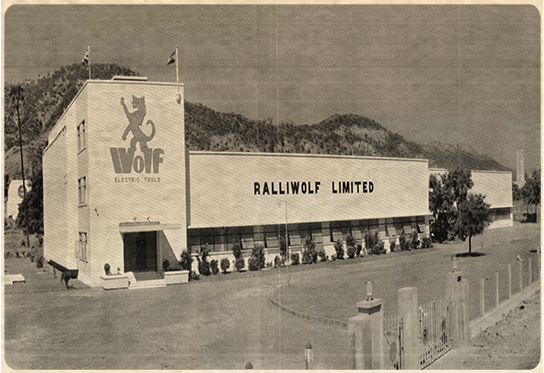
Ralliwolf Factory, Mumbai
Later, the Company also added fertiliser mixtures made from oil cakes and further got engaged in the distribution of pesticides. It also extended to light electrical engineering (iconic brands of Ralli Fan and Ralli Wolf Electric Tools), export houses, pharmaceuticals and others.
Mr. J. R. D. Tata, with the Tata ethos of serving the society, was concerned about the health of millions affected by malaria in India. He struck a 50:50 alliance with Fison, the largest manufacturer of granulated fertilisers and organic horticulture mixtures in England and formed Tata-Fison in 1957. This Company later acquired Geigy’s DDT formulation business in India.
Mr. Tata joined hands with the Government of India’s National Malaria Eradication Programme. This high visibility campaign proved successful as India was declared malaria-free by the World Health Organisation (WHO) in the 1960s. The DDT pesticide activities also created a market in agriculture.
In 1962, Tata-Fison acquired Rallis as the new owners of Ralli Brothers London decided to disinvest the Indian company. Later, Tata-Fison was merged with Rallis.
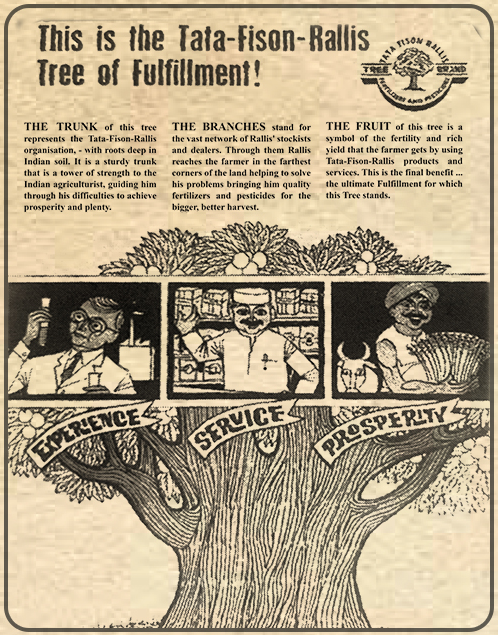
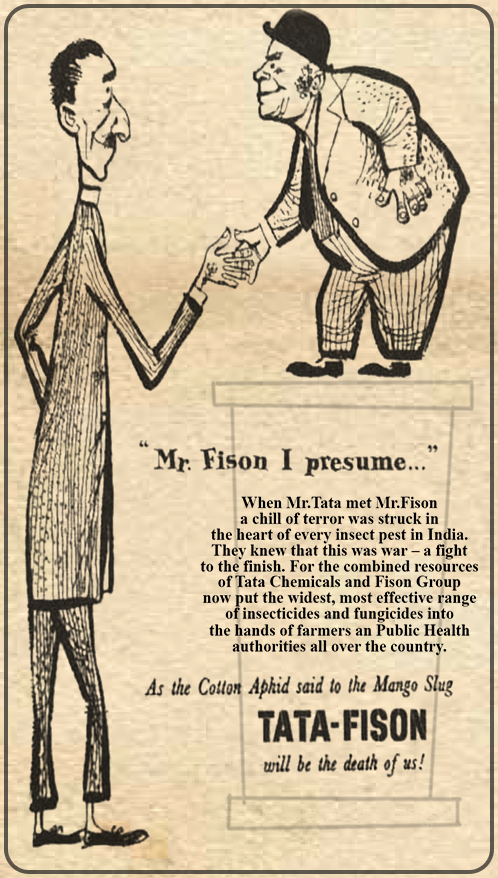
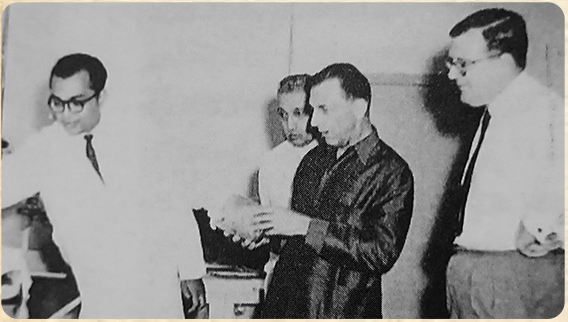
JRD Tata at R&D Lab, Bangalore
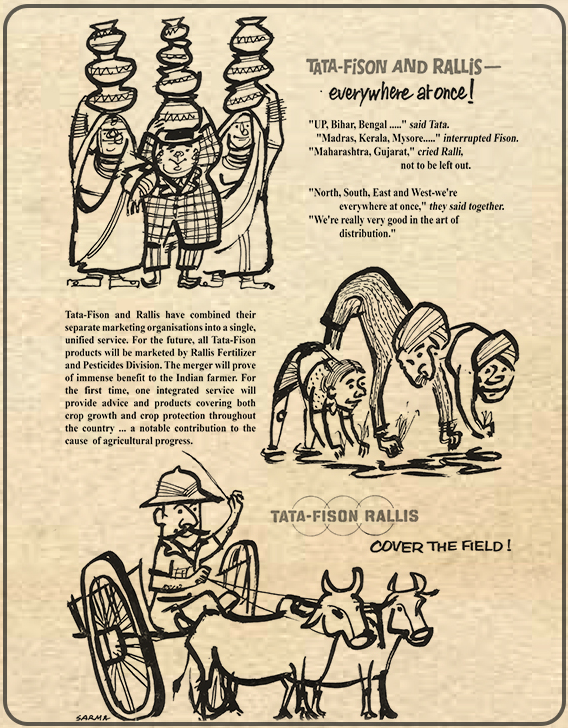
In 1966, the first technical manufacturing plant was commissioned and Rallis soon became a master of organophosphate chemistry in India with the introduction of further molecules with the same chemistry. Market development and farmer education activities were given special emphasis and it was this differentiated approach that helped Rallis in emerging as the number one Agrochemicals Company in India at a later stage.
Multiple business challenges led to divestment of engineering, tanning chemicals, gelatine and the pharmaceutical business. Rallis continued its journey of “Serving Farmers Through Science”.
Timeline of heritage and key milestones, chronicling the journey of Rallis since inception.
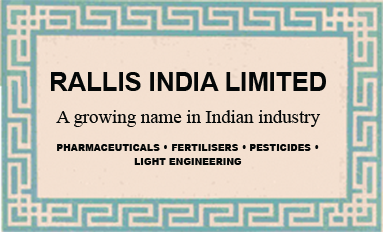
Incorporated on August 23, 1948
Initial public offer
Diversification into Fertilisers, Pesticides, Pharmaceuticals and Engineering
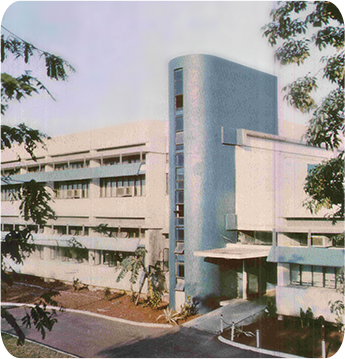
Tata Fison acquired Rallis and later, Tata Fison merged with Rallis
Full-fledged agri-input company with establishment of manufacturing facilities for Fertilisers and Pesticides
The first technical manufacturing plant at Navi Mumbai to manufacture the iconic Dimethoate (insecticides brand now sold as Tafgor changed the face of Rallis).This was followed by further manufacturing of organophosphate chemistry-based products
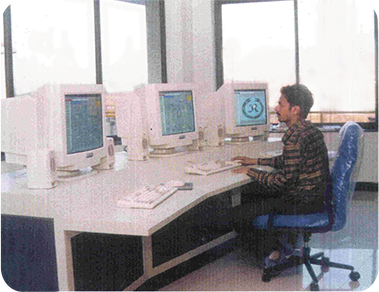
Agrochemicals manufacturing infrastructure set-up at Ankleshwar, Derabassi, Akola and Lote
Launched Contaf, the iconic fungicide brand
Exited from the Engineering business
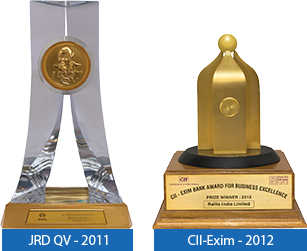
Subdued financial performance led to exit from non-core activities and sharpened the focus on agrochemicals. Became a subsidiary of Tata Chemicals
NABL Accreditation across Quality Labs. Commissioned Rallis Innovation and Chemistry Hub (RICH) in Bengaluru. Accredited with Responsible Care (RC) Logo, JRD QV and CII EXIM award
Manufacturing infrastructure set-up at Dahej SEZ and CZ including captive solar power plants. Acquired Seeds (Metahelix) and Soil Conditioners (Zero Waste) businesses
The Indian agri-input industry is critical for the country’s agriculture sector, the backbone of the rural economy. With an increasing population and rising incomes, one can expect higher demand for agricultural commodities which provide food, feed and fibre and even fuel. The whole of agriculture is undergoing transformation to ensure that the sector will continue to contribute and support the balanced growth of the fastest-growing major economy in the world. The Government is focussed on facilitating this transformation through appropriate policy measures.
Farmers are expected to switch to herbicides, seed solutions and mechanisation, including the use of drones as an alternative to agricultural labour. There is an increasing trend of ‘‘combination’’ products that not only reduce the number of sprays but also more effective against pests across crops. The proliferation of drone-based applications of agri-inputs is expected to revolutionise the safety and efficiency of input usage going forward.
There is an increasing trend of data-driven agriculture across the world and one can expect wider adoption of these solutions among the Indian farming community. Farmers’ Producer Organisation platforms are expected to play an important role in farm aggregation which will improve operational efficiencies and farm income through forward and backward linkages with agri-inputs and output value chain partners.
The industry will continue to partner with the farming fraternity not only to increase the production of agri commodities but also to address the climate change and sustainability challenges. Superior and safer chemicals, biologicals, seed solutions, etc. are capable of addressing these challenges. Evolving regulations will fast-track the research, development and adoption of new sustainable solutions.
India is becoming a preferred choice for manufacturing as part of the supply chain diversification strategy adopted by global industries. The Indian agrochemical manufacturing sector has already intensified investments and partnerships to tap these opportunities by leveraging its competitive advantage.
Rallis is focussed on innovation and manufacturing-led growth to tap the emerging opportunities in domestic and export agri-inputs markets. The portfolio expansion strategy includes differentiated, newer, safer and high-efficacious chemicals, biologicals, crop nutrition and seeds solutions. This will be supported by digital solutions that strengthen the internal processes and facilitate access and adoption by farmers.
Tata InnoVista Award - 2022